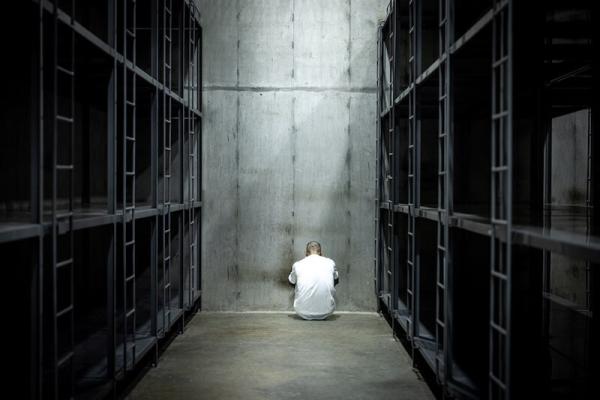One year into the COVID-19 pandemic, the outsize toll borne by women is still coming to light. Increased caregiving duties at home have driven women from their jobs at four times the rate of men, sacrificing a generation of progress on workplace gender equity. Women of color face heightened risk of losing much-needed income, with devastating effects on their families. Stay-at-home orders and economic pressures have intensified the prevalence and severity of intimate partner violence.
These injustices could be fought more vigorously with one key provision: an amendment to the U.S. Constitution that ensures women’s equality under the law.
So it comes as good news that the U.S. House of Representatives moved toward finalizing the Equal Rights Amendment, which would secure full equality for women — and all people — for the first time in U.S. history. On March 17, a bipartisan majority passed a resolution to abolish the time limit on ERA ratification.
In doing so, House leaders elevated the importance of equality as a national value over legalistic hair-splitting about the amendment process. This was the right choice morally and legally, and the Senate should follow suit. It is well past time for the ERA — now ratified by 38 states and supported by a supermajority of the populace — to be fully enshrined as the 28th Amendment.
For people of faith, in particular, and for lawmakers in the world’s oldest democracy, the deciding issue must be, quite simply, whether equality before the law is just and right. The answer to this ethical question carries the day and renders most objections to the ERA irrelevant.
Some struggle to understand how this short provision ensuring rights “shall not be denied or abridged… on account of sex” still provokes virulent opposition, 150 years after abolitionists first sought to include women in the constitution. But this fits the pattern of white and male supremacy etched on the ugly underbelly of American and Christian history.
The church has its own shameful story of devaluing women. Equality between men and women was attested from the beginning: “male and female, God created them” (Gen. 1:27). In scripture we meet leaders like Miriam and Deborah, and women who testify to the risen Christ, apostles like Junia. Later, Julian of Norwich and St. Teresa of Ávila commune with the Divine.
But in the 13th century, St. Thomas Aquinas followed Aristotle’s wayward footsteps, denigrating women as “malformed” and inherently less worthy. Self-interested will-to-power and spiritual immaturity led to global subjugation of the female half of humanity, instead of appreciation that women, too, reflect sublime sparks of divine, creative love.
So the Christian West bequeathed America a legal system in which a woman was considered “something better than her husband’s dog, a little dearer than his horse,” as one judge paraphrased the poet Tennyson. This quote was underscored by the late Rev. Dr. Pauli Murray, who called out the complicity of bad theology in an American legal system that once saw fit to authorize violence against women, so long as it occurred within marriage.
If full equality cannot be achieved under the current constitution, Murray determined, the case for the ERA is “unassailable.”
Though some today claim we don’t “need” this amendment, the domestic violence that afflicts one in three U.S. women, the loss of maternal income that is leaving children hungry, and the daunting maternal mortality rate that targets Black mothers say otherwise.
While women receive some regard under the Equal Protection Clause, that protection is based on a lesser standard than the standard for racial or religious discrimination. Worse still, some jurists argue this half-measure is illegitimate, because the 14th Amendment was not intended to protect women when adopted in 1868. Thus the late Justice Antonin Scalia insisted there is no protection for women in the constitution, apart from the right to vote.
Other ERA opponents contend true equality would buttress abortion rights, but there is no precedent for this notion — not in Supreme Court jurisprudence and not in the legislative history of the ERA. For better or worse, abortion rights recognized by the U.S. Supreme Court are not grounded in equality; they’re based on a different legal theory altogether. With or without an ERA, the moral challenge of reconciling women’s embodied human dignity and worth with the value of nascent human life will be with us. The ERA will, however, help parents in caring and providing for their families, by promoting pay equity and supportive workplace policies on pregnancy, childbirth, and parenthood. It will empower Congress to take decisive action on violence against women, a leading cause of female homicide and maternal death. Doing the right thing will foster the common good.
Søren Kierkegaard realized, “If everyone in truth loved the neighbor as himself, then perfect human equality would be achieved.” Regard for another’s basic human rights, including the right to live free from subjugation, is part of what love requires. Such mutual respect constitutes “primary justice,” in the words of Nicholas Wolterstorff, which is an essential component of neighbor love. Our society is more just when everyone’s rights are respected and protected.
It has always been a mistake to claim that we can have spiritual equality before God without safeguarding our social and legal equality before the state. Many a tragic doctrinal error that Christians hasten to disavow today — theological arguments for chattel slavery, for one — can be traced to this fallacy.
Yet by grace, many Christians can also testify to the radically egalitarian character of the gospel, which scholar Duncan B. Forrester says “worked like the seed growing secretly” to gradually, through great theological contest and social struggle, liberate those on the margins.
In this spirit of liberation, a diverse group of faith leaders recently affirmed support for the equal rights of all people, irrespective of gender, through a statement of support for the ERA. Justice Revival, the human rights ministry I lead, championed this effort alongside Sojourners, Freedom Road, and many other allies.
If we have finally learned — through painful, shameful episodes in our history — that human equality is a vital first principle, we must not scuttle it when confronting hard issues, but instead place faith in God’s moral coherence and seek deeper wisdom.
Congress is well within its rights to repeal the time limit on ERA ratification. And as people of faith professing justice and love, we are duty bound to insist they do.
Got something to say about what you're reading? We value your feedback!







